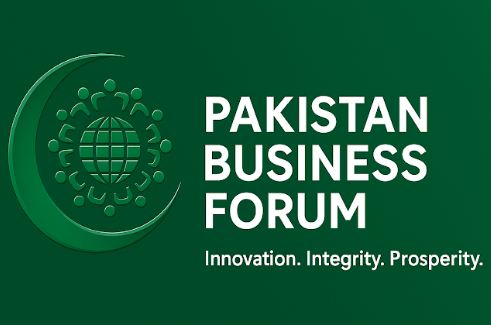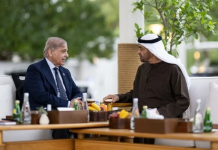LAHORE, NOV 2 /DNA/ – The Pakistan Business Forum (PBF) has issued a detailed report highlighting the country’s long-term economic decline despite repeated currency devaluations over the past five decades. According to the PBF an independent, non-partisan, not for profit organisation clearly demonstrates that devaluation of the Pakistani rupee has not translated into improved export competitiveness or sustainable economic growth.
From 1955 to 1971, Pakistan experienced what many economists refer to as the “Golden Era,” with a stable exchange rate of PKR 4.75 per US dollar. This period was marked by steady industrial growth, manageable inflation, and a competitive export environment. However, after 1971, a continuous trend of devaluation began. By 1975, the exchange rate had fallen to PKR 9.99 per dollar, and by 2025, it has reached approximately PKR 284 per dollar. Despite this massive depreciation, Pakistan’s export performance has failed to show meaningful progress.
The PBF identifies a persistent structural problem: devaluation has been treated as a quick fix for deeper economic weaknesses rather than addressing the underlying causes of poor export competitiveness. The Forum notes that official exchange rate disparities with the open market have created artificial dollar scarcity, benefiting tax evaders and currency hoarders who exploit a premium of around three percent. Moreover, the country’s dependence on major inelastic imports such as oil and edible oil has neutralized any potential benefits of a weaker currency. As a result, devaluation has led to higher inflation without stimulating exports or industrial productivity.
The core issue, the PBF explains, lies in the fact that almost all productive inputs in Pakistan’s economy are dollar-based. The country remains heavily dependent on imported raw materials, imported machinery, dollar-linked energy sources, and technology that requires payment in foreign currencies. This structural dependency means that devaluation only increases production costs rather than enhancing competitiveness.
The Pakistan Business Forum warns that unless Pakistan addresses these root causes, the cycle of devaluation, inflation, and declining competitiveness will continue. The Forum urges policymakers to shift their focus from currency manipulation toward comprehensive economic reforms aimed at enhancing productivity, reducing input costs, and improving business efficiency.
Export competitiveness, the PBF emphasizes, cannot be achieved through devaluation alone. It requires genuine productivity improvements, lower operational and input costs, a reduction in interest rates, and a stable policy environment that encourages innovation and efficiency. Only through addressing these foundational weaknesses can Pakistan hope to rebuild a resilient and competitive export sector.
The Pakistan Business Forum calls upon the government, industry leaders, and financial institutions to work together in creating a long-term strategy focused on self-reliance, technological advancement, and sustainable growth. The Forum further reaffirms its commitment to advocating for policies that promote economic stability, investment, and genuine export competitiveness for Pakistan’s future prosperity.

















